A 1 year LPN to RN program is designed to help you transition from a career as a licensed practical nurse (LPN) to a registered nurse (RN).

LPNs provide basic nursing care for patients, while RNs have a wider range of competencies and responsibilities. If you want to make the leap to become an RN, you can choose to earn an associate’s degree or bachelor’s degree in nursing.
Editorial Listing ShortCode:
LPN to RN accelerated programs enable students to acquire the necessary education and skills to advance their careers in as few as two semesters.
1 Year LPN to RN Programs Online
Nursing is a broad field with many career paths and educational opportunities. Aspiring RNs can pursue an online associates or bachelors degree in nursing. These programs cover similar concepts, but bachelor’s programs typically focus on more advanced skills.
Additionally, nursing professionals who earn a bachelor’s degree may have more extensive career opportunities. Select the program that most interests you to jump to that section of the guide:
You can explore these programs to see which ones best match your interests and goals.
LPN to ADN Programs

Licensed practical nurse (LPN) to associate degree in nursing (ADN) programs are generally the fastest path to an RN career. These online programs focus on practical skills that nurses use to care for patients and deliver healthcare services. They also help prepare students for the National Council Licensure Exam (NCLEX-RN).
Editorial Listing ShortCode:
The curriculum typically includes foundational science topics, including human anatomy and physiology, microbiology, and sociology. Students may also develop soft skills by taking courses on healthcare ethics, leadership, and professional nursing practices. In addition, most LPN to ADN programs include general education courses, such as English and mathematics.
LPN to BSN Programs

Licensed practical nurse (LPN) to Bachelor of Science in Nursing (BSN) programs provide a more in-depth nursing education. These programs cover advanced nursing concepts, skills, and theories. They also allow students to gain clinical experience and learn about research methodologies.
Editorial Listing ShortCode:
LPN to BSN programs include science classes like developmental psychology, pharmacology, and pathophysiology. They also cover advanced approaches and practices, such as nursing informatics, health promotion, and research in nursing. Students who earn this degree often go on to become RNs. They may also qualify for administrative and leadership positions, such as clinical coordinators and nurse managers.
Nursing Careers & Salaries
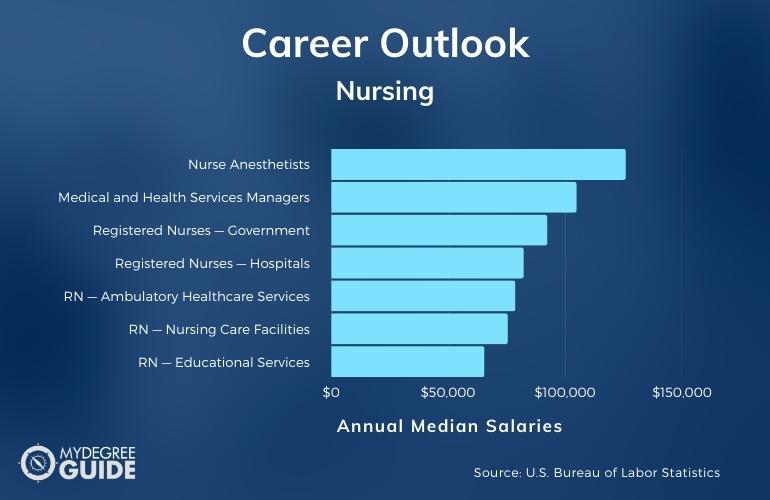
LPN to RN accelerated programs can unlock a broad range of careers in the healthcare industry. Many graduates use their knowledge and skills to pass the NCLEX-RN and become registered nurses.
These professionals care for patients in a variety of healthcare facilities, including community clinics, hospitals, and private practices. Graduates can also use their nursing degrees to secure positions adjacent to the healthcare sector. Potential career paths include healthcare writer, pharmaceutical salesperson, and athletic trainer.
According to the Bureau of Labor Statistics, here are several careers associated with nursing and their median salaries.
| Careers | Annual Median Salaries |
| Nurse Anesthetists, Nurse Midwives, and Nurse Practitioners | $125,900 |
| Medical and Health Services Managers | $104,830 |
| Registered Nurses — Government | $92,310 |
| Registered Nurses — Hospitals | $82,250 |
| Registered Nurses — Ambulatory Healthcare Services | $78,670 |
| Registered Nurses — Nursing and Residential Care Facilities | $75,410 |
| Registered Nurses — Educational Services | $65,450 |
| Licensed Practical and Licensed Vocational Nurses | $54,620 |
| Phlebotomists | $38,530 |
| Nursing Assistants | $35,760 |
Some of these jobs require additional education or training beyond an ADN or BSN. For example, nurse anesthetists and practitioners must have a master’s degree. But, an LPN to ADN or BSN program can be a stepping stone to these advanced positions.
Additionally, people who earn BSNs can pursue leadership and research roles. For example, some graduates become nurse managers and supervise units of nurses. Others secure positions as nurse educators and teach patients about diseases, public health, and other important topics.
LPN to RN Curriculum & Courses

The specific curricula for online LPN to RN programs vary by school and type of degree, but many programs include similar courses, such as the following:
- Foundations of Nursing Practice: This class teaches you evidence-based nursing approaches and principles used to care for patients across the lifespan.
- Human Anatomy and Physiology: You’ll study the function, structure, and disorders of systems in the human body, including the endocrine, nervous, and skeletal systems.
- Introduction to Child Development: You’ll analyze how children develop behaviorally, cognitively, emotionally, physically, and socially from infancy to adulthood.
- Introduction to Psychology: This class focuses on foundational psychological concepts and theories, including abnormal behavior, memory, and personality formation.
- LPN to RN Transition: This course covers concepts and skills that nurse generalists use to care for patients, such as mental health assessment techniques and nutrition.
- Maternal Child Nursing: You’ll investigate methods for delivering healthcare to infants, children, and mothers.
- Medical Surgical Nursing: This class focuses on the pre- and post-surgical care of adults with cancerous, gastrointestinal, renal, and sensory disorders, among others.
- Pediatric Nursing Concepts: You’ll learn how to provide preventative care for infants and children, treat injuries and illnesses, and educate families about healthcare.
- Pharmacology: This class introduces you to foundational pharmacological methods and principles, including infection control, medication administration techniques, and pharmacokinetics.
- Psychiatric Nursing: You’ll explore common mental health disorders, diagnostic tools, and treatment methods.
Some colleges also offer specialized courses in areas like nursing informatics and clinical research.
Admissions Requirements

Fast LPN to RN online programs have varying admissions requirements, so it’s beneficial to research each school’s criteria before applying.
Like any accelerated nursing programs online, here are a few common prerequisites:
- An active LPN license
- A high school diploma or GED
- At least 1 year of work experience as an LPN
- A passing score on a skills test, such as the Test of Essential Academic Skills (TEAS)
In addition, many colleges offering fast online degrees require students to complete mandatory general education courses before enrolling in online LPN to RN programs. For instance, it might be necessary to demonstrate that you’ve passed foundational biology, English, and psychology classes.
LPN to RN Bridge Programs Online Accreditation
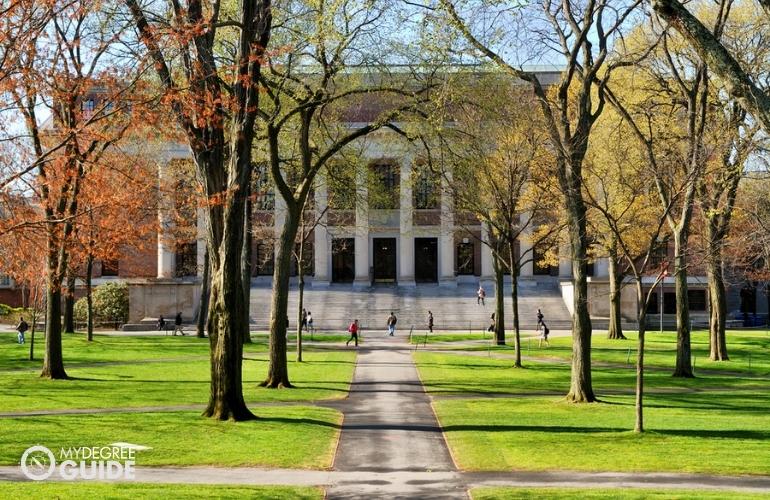
Accreditation is an essential consideration when researching online LPN to RN programs or fast track LPN programs online. Colleges and universities with regional accreditation have verified that they provide a high-quality education.
Additionally, the NCLEX-RN exam is only open to students who have received nursing degrees from accredited nursing programs. You’re required to pass this exam to obtain an RN license, so choosing an accredited online program ensures you’re eligible to take it.
Editorial Listing ShortCode:
You can visit the Council for Higher Education Accreditation’s website to learn more about regional accreditation and to find accredited schools.
Financial Aid and Scholarships

Many students seek financial assistance to reduce the cost of a 2 semester LPN to RN program. You can start investigating financial aid opportunities by filling out the Free Application for Federal Student Aid (FAFSA).
The US Department of Education uses this application to determine eligibility for federal grants, student loans, scholarships, and work-study programs. In addition, many employers in the healthcare industry offer tuition assistance or reimbursement programs. This benefit can help you pay for educational expenses as you earn your nursing degree.
In exchange, you may be required to promise to continue working for your employer for a specific period and to maintain a high GPA.
What Can You Do with an LPN to RN Degree?

Many graduates use their LPN to RN degrees to become registered nurses. They often work for home healthcare services, hospitals, schools, and other employers.
According to the Bureau of Labor Statistics, the demand for registered nurses is expected to grow by 6% over the next ten years. This degree can also lead to supervisory careers in healthcare. Some professionals work as medical and health services managers. Openings for this position are likely to increase by 28% over the next decade.
Additionally, some graduates use their RN degree to pursue careers outside of healthcare, like freelance healthcare writer or wellness coach.
How Long Does It Take to Become an RN From LPN?

LPN to RN programs typically take 1 to 2 years to complete, depending on university’s program requirements. Aspiring nurses often want to know how to become an RN fast.
You can complete many LPN to ADN programs in 2 to 3 semesters if you enroll full-time. Some colleges allow students to transfer credits from LPN programs, which can help shorten the timeline. LPN to BSN programs require more credit hours, so they often take 2 years to complete with full-time enrollment.
What’s the Difference Between an LPN vs. RN?
LPNs and RNs both deliver essential healthcare services to patients, but there are many differences between these careers.
| Licensed Practical Nurse (LPN) | Registered Nurse (RN) |
|
|
Additionally, RNs often earn significantly higher salaries than LPNs.
Is Becoming an RN Worth It?

Yes, becoming an RN is worth it for many students. Earning an ADN or BSN allows you to study advanced nursing approaches and theories. You can use this knowledge to provide a wider range of services for patients. For example, you may educate patients about their health and perform medical procedures.
Editorial Listing ShortCode:
Transitioning from an LPN to an RN can be a strategic career move. According to the Bureau of Labor Statistics, 6% job growth is projected for registered nurses over the next ten years, which is faster than the average for all occupations.
RNs can also pursue careers in specialized areas like nurse education and nurse informatics. Some RNs pursue graduate education to become a family or psychiatric and mental health nurse practitioner. A number of universities now offer the shortest online PMHNP certificate programs.
Universities Offering Online 1 Year LPN to RN Programs
Methodology: The following school list is in alphabetical order. To be included, a college or university must be regionally accredited and offer degree programs online or in a hybrid format.
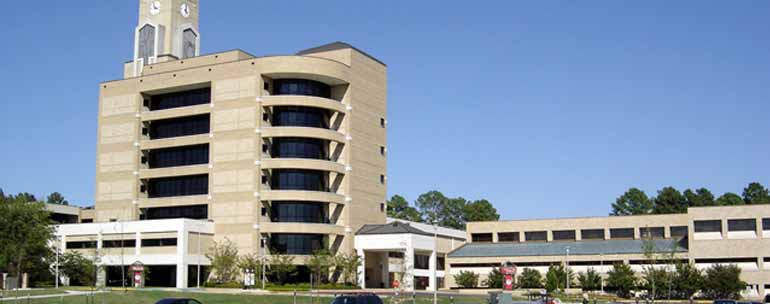
Arkansas State University offers an AAS in nursing designed for LPNs. The program is designed especially for students working in acute or long-term care. All coursework can be completed online, but on-campus weekend clinicals are required. Courses are 7 weeks long. The program begins during the fall semester of each year.
Arkansas State University is accredited by the Higher Learning Commission.

Cape Fear Community College offers an LPN to RN program designed for students who wish to become registered nurses. The program is offered in a hybrid format, with classes on campus and online and a required clinical component. The program can typically be completed in 2 semesters and is designed to prepare students for the NCLEX-RN exam.
Cape Fear Community College is accredited by the Southern Association of Colleges and Schools Commission on Colleges.

Catawba Valley Community College offers an LPN-RN bridge program designed for students who want to earn an associate degree in nursing. Coursework is completed in a hybrid format, with Saturday clinicals. The program can typically be completed in 2 semesters.
Catawba Valley Community College is accredited by the Southern Association of Colleges and Schools Commission on Colleges.

Delta College offers an RN program designed for certified LPNs. Some courses may be completed online, but some classes and labs meet on campus. Clinicals may be completed locally. The program can potentially be completed in 16 months and is designed to prepare students for the NCLEX-RN exam.
Delta College is accredited by the Higher Learning Commission.

Laboure College of Healthcare offers an LPN to RN program that is offered in a hybrid format, with some labs and courses on campus. Students may be able to earn credit for what they already know, shortening their time to completion. The program can potentially be completed in 1 year of full-time enrollment.
Labouré College of Healthcare is accredited by the New England Commission of Higher Education.

Mississippi Gulf Coast Community College offers an LPN to RN hybrid program. At least 25% of the program must be completed on campus. The program offers weekday, weekend, and evening classes. Students begin during the summer semester and may be able to finish in just 3 semesters.
Mississippi Gulf Coast Community College is accredited by the Southern Association of Colleges and Schools Commission on Colleges.
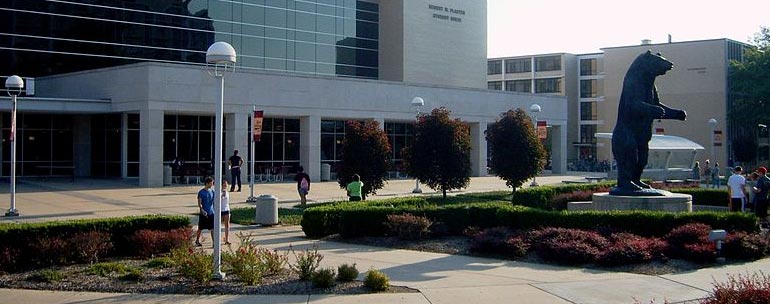
Missouri State University – West Plains offers a bridge program designed for LPNs who want to become RNs. Those that successfully complete the program earn an AS in Nursing and are eligible to apply for the NCLEX-RN exam. Much of the program can be completed online, but there are three required on-campus components. Clinicals may be completed at an approved facility in Missouri. The program may be completed in 12 months.
Missouri State University – West Plains is accredited by the Higher Learning Commission.

Mitchell Technical College offers an LPN to RN program. Successful completion of the program results in an AAS in Nursing and eligibility to take the NCLEX-RN exam. The program is predominantly online, with short on-campus visits and local clinical hours. The school follows a regular semester schedule, and the program may be completed in just 3 semesters.
Mitchell Tech is accredited by the Higher Learning Commission.
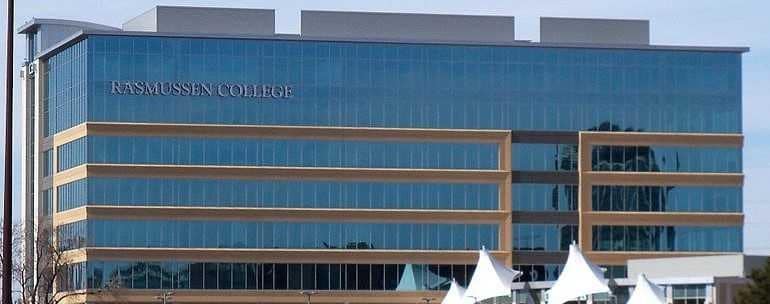
Rasmussen University offers a bridge program for LPNs who want to become RNs. The program is offered in a hybrid format, with online coursework and labs on campus. Clinical experiences are also required. Rasmussen has campus locations in five states. The program offers four to eight start dates, depending on the chosen campus.
Rasmussen University is accredited by the Higher Learning Commission.

Western Kentucky University offers an LPN to RN program that results in an AS in Nursing and eligibility to take the NCLEX-RN exam upon successful completion. The program is almost entirely online, with proctored exams on campus. The program can potentially be completed in 3 semesters of part-time enrollment.
Western Kentucky University is accredited by the Southern Association of Colleges and Schools Commission on Colleges.
Getting Your RN Degree Online

Enrolling in a fast LPN to RN program can accelerate your professional development and enable you to advance your nursing career.
These online programs often take 1 to 2 years to complete so that you can become an RN quickly. Additionally, a 2 semester LPN to RN program allows you to explore new concepts and specialties. For example, you could take courses about nursing education, leadership, and research.
If you’re ready to take your nursing career to the next level, you can continue your educational journey by researching accredited online LPN to RN programs.

